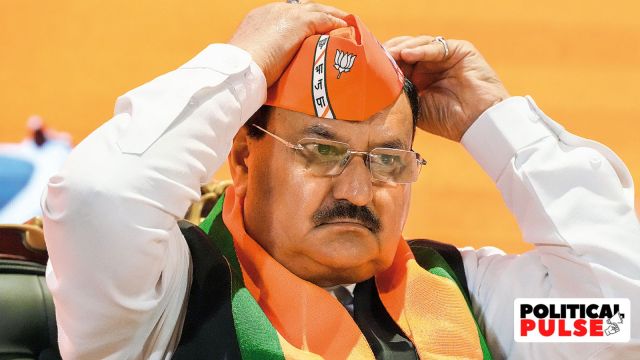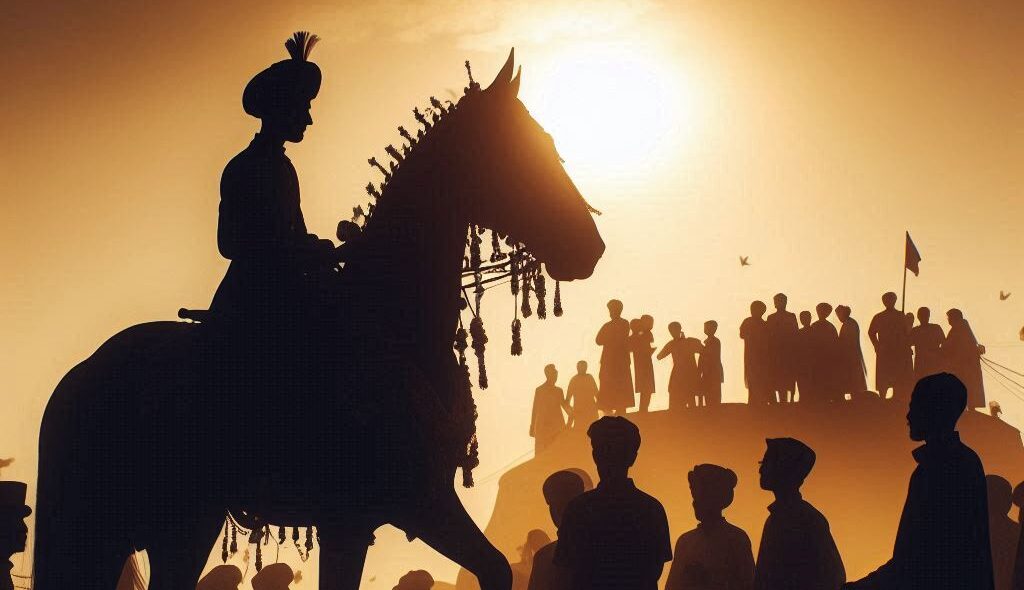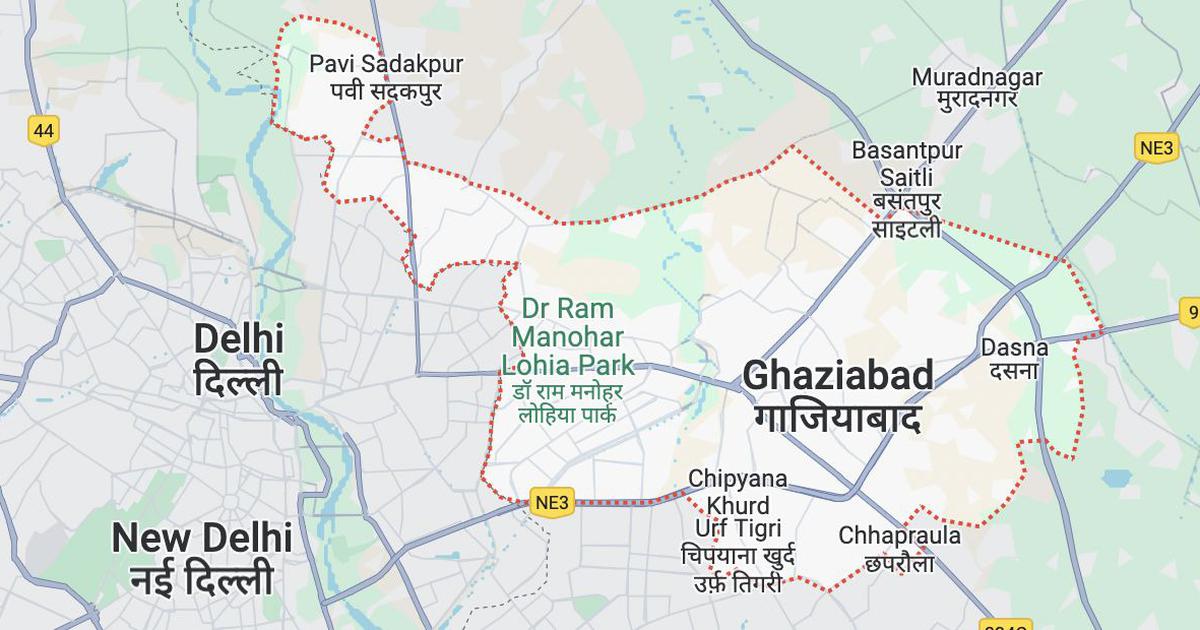
Intellectuals of the Rashtriya Swayamsevak Sangh (RSS) and Bharatiya Janata Party are foregrounding the theory of integral humanism that Deendayal Upadhyaya (1916-1968) is said to have propounded.
RSS chief Mohan Bhagwat, general secretary Dattatreya Hosabale and secretary Ram Madhav have been repeatedly talking about Upadhyaya’s integral humanism, defining it as the core philosophy which will guide their future in power.
Prime Minister Narendra Modi also occasionally talks about this philosophy as his government’s beacon. The latest invocation of this theory was at the book launch of Ram Madhav’s The Hindutva Paradigm: Integral Humanism and Quest for a Non-Western Worldview. At the launch, Hosabale said, “Hindutva is neither left nor right, integral humanism is its essence.”
The question, however, is how this philosophy of integral humanism makes the RSS and its ideologues different from what they were earlier, as followers of the likes of V.D. Savarkar, K.B. Hedgewar and M.S. Golwalkar. It is important to examine this philosophy not only for the interest of India’s minorities – whom the RSS has traditionally reviled – but especially for the interest of Shudras, Dalits and Adivasis, whom they use as muscle power against Muslims and Christians without giving them equal status in the varna dharma parampara (the tradition of caste-based religion) that the Brahminic Hindutva philosophers so far have been following.

From left to right: RSS ideologues K.B. Hedgewar, M.S. Golwalkar, Deendayal Upadhyaya
Deendayal Upadhyaya was an RSS worker, who later in life became the second president of the Bharatiya Jana Sangh, the political wing of the RSS. He was a Brahmin from Uttar Pradesh, brought up in the same environment that Bhagwat, Hosabale and Ram Madhav spent their childhood in, as all of them come from the same caste background, though born in different states.
The growth of caste culture that takes place in an Indian’s personality in childhood remains with her or him for the rest of their life.
There are many traits of Brahminism that go against human equality, even within the scope of Hindutva, and which are a byproduct of the varna dharma casteism of the Brahminic tradition. In many of its earlier theoretical writings, particularly of Golwalkar, the RSS elaborated a whole system of Hindutva parampara. Both Golwalkar and Hedgewar had a Brahmin background, and so far, there is no Shudra, Dalit or Adivasi theoretician from among the Sangh’s ranks.
An upbringing within the caste culture eschews any integral co-existence with other caste beings. Caste divisions are enforced more rigidly than divisions with persons born and brought up in different religious cultures. Can integral humanism serve the purpose of making India an individually equalised cultural nation? Only if it incorporates the goal of making Hinduism a democratic religion.
Upadhyaya was opposed to both western capitalist individualism and Marxist socialism, though he supported western science selectively.
Any science – western or eastern – is rooted in the dignity of labour and production of goods and commodities without involving purity and pollution principles around human production, including agrarian and artisanal activity.
As an organisation deeply rooted in Brahminism, the RSS’s notion of Indian tradition is constructed around the Brahminical values of purity, pollution and the graded inequality of caste and gender, along with human untouchability.
Upadhyaya has not problematised the question of caste in the same manner as Marxist and liberal intellectuals from Brahmanic backgrounds did. Nor do the contemporary RSS or BJP intellectuals problematise caste culture by integrating the ideology of Mahatma Phule and Dr. B.R. Ambedkar, in which abolition of caste and human untouchability in all spheres of human life is a cardinal principle.
What Upadhyaya tries to do is combine Mahatma Gandhi’s sarvodaya and gram swaraj. Why Gandhi and not, say, Phule or Ambedkar? Because Gandhi too was a supporter of Hindu varna dharma, if not human untouchability.
According to one critique, the integral humanism theory of Upadhyaya followed the tradition of advaita developed by Adi Sankara. Though the advaita school talks about non-dualism of the divine essence, it did not go against the worshiping of deities that have Kshatriya (Vishnu, Sri Rama and so on) and Brahmin (Parashurama) roots in the Puranic and Ramayana mythological tradition. The Ram temple movement – with its ‘Jai Shri Ram’ slogan and violence against minorities as an acceptable norm – was the RSS’s creation itself. RSS intellectuals know that Ram came from a Kshatriya dynasty which did not believe in the abolition of caste but in the perpetuation of it.

A statue of Ram in Ayodhya. Photo: Reuters/Danish Siddiqui
How does the idea of integral humanism become possible when the divine deities they promote and institutionalise have roots in caste spirituality? The idea of non-dualism should operate, at least, in the principle that there is only one god and that god created all human beings – men and women – equal. The major challenge before the Shudra, Dalit and Adivasis working in the Hindutva school – even with the newly emphasised ideology of integral humanism – would be in negotiating their place in that spiritual and cultural nationalism.
As the integral humanist philosophy being propagated by RSS and BJP intellectuals does not have an agenda for abolition of caste, gender inequality and untouchability as part of its core ideology, what will happen to the unequal status of Shudras, Dalits and Adivasis in the Indian system and also within the Hindutva organisations?
It is not a coincidence that within their networks, they did not allow any Shudra, Dalit or Adivasi intellectual to emerge and offer a reflection of their own self-status.
The RSS and BJP have so far not accepted that dignity of labour, even in the Hindu spiritual domain, is part of their ideological agenda. Even if you ignore caste language, a Hindu shoe maker, pot maker, sweeper, scavenger or shepherd cannot become a priest in a Hindu temple even if the person is qualified. How does integral humanism overcome this historical problem? Without a theory of human equality what does integral humanism mean?
Upadhyaya’s integral humanism theoretically talks about the organised attributes of body, mind, intellect and soul. Does it include the mind, intellect and soul of Shudras, Dalits and Adivasis, who are organised into the Hindutva organisations? As of now, they do not have equal spiritual rights in Hinduism and equal intellectual status to that of Brahmins who are propounding these theories.
Also, how does integral humanism deal with the food culture of all Indians?
Both modern Brahminism and Hindutva organisations believe in vegetarianism.
Universal humanism, a known philosophical postulate, does not discriminate against human beings based on their food culture, whether in civil society or in spiritual society. If the RSS’s integral humanism is like universal humanism, what will it do to its long history of (about 96 years in the present form) stressing about vegetarianism?
Upadhyaya’s integral humanism opposes individualism, thinking that it is of Western origin. It appears that its opposition to individualism is based on its belief in casteism or communalism. But the Indian constitution itself functions based on individual rights as every individual is a citizen with one vote and one value. Is not, then, the RSS’s integral humanism opposed to the present constitution?
Herein lies the threat to Shudra, Dalit and Adivasi rights, apart from minority rights, in this philosophy.
Look at the paradox of Hindu society. Except for Brahmins and other Dwijas, both theoretically and practically, Shudras, Dalits and Adivasis are considered to be people of only body but not of mind, intellect and soul.
In the Rig Vedic theory of four varnas – Shudra, Vaisya, Kshatriya and Brahmin – the Shudras were assigned the role of slavery (what was called ‘service’ to other three varnas) without allowing them to use their mind or intellect. They were denied their spiritual soul. The notion of the soul is that it is a separate entity within the human and is supposed to exist independent of the body.
The Hindutva school that believes in religious dogmatism and wants to use it in political domain as well, still does not believe in promoting Shudras, Dalits and Adivasis as priests in Hindu temples. Thus, they are still being treated as soulless beings.
Again, how does integral humanism generate a Soul among the productive masses who constitute the food producing farmers of India? They are the vast majority and the Brahminic integral humanism of the RSS does not show them any new path of liberation.
Kautilya’s Arthshastra, Manu’s Dharmashastra, the Ramayana and the Mahabharata have all affirmed the status of castes. These books are being promoted in schools, colleges and universities under the present regime.
What kind of integral humanism will be taught in our educational institutions where there is no syllabus that teaches castelessness and dignity of labour? Silence about the systemically institutionalised caste and deeply entrenched indignity of labour that promotes human untouchability does not serve any purpose of transformation.
I am of the strong view that the RSS and BJP are anti-transformational structures. How does this theory of integral humanism make them transformational if within it, the present status of Shudras, Dalits and Adivasis will not change?
If Mohan Bhagwat, Dattatreya Hosbale and Ram Madhav let the nation know how this theory of integral humanism which is being newly propagated is different from Hindutva Brahminism and how it solves some of the major issues raised here, the nation will be certainly thankful to them.
This story first appeared on thewire.in






